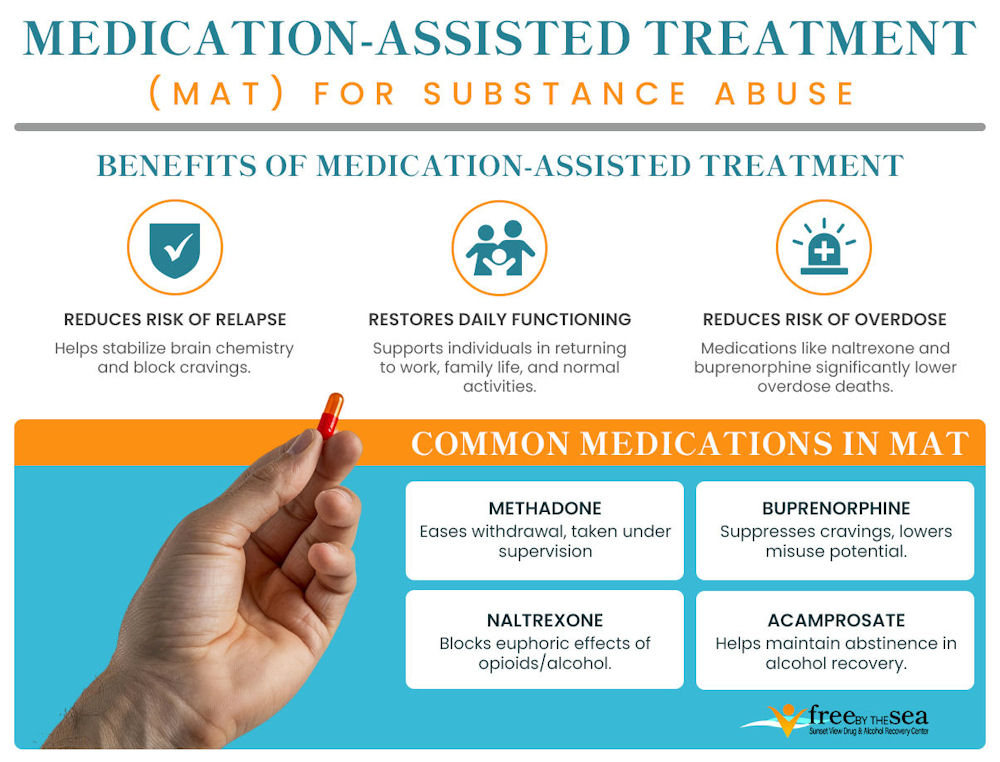The encouragement you’ll experience from rehab near Chester NJ programs
Wiki Article
A Comprehensive Guide to Substance Abuse Rehabilitation
Substance Abuse rehabilitation, typically referred to as rehab, is a structured process designed to assist individuals overcome reliance on drugs, alcohol, or various other addicting substances. It is not merely concerning cleansing-- it is a journey of psychological, emotional, and physical change. Rehab facilities give risk-free settings where individuals can confront the origin of their addiction, address psychological triggers, and discover coping mechanisms to endure lasting soberness. This procedure is guided by skilled specialists, including therapists, medical doctors, and counselors that recognize the complex nature of dependency as both a physiological and behavioral condition.Recognizing the Core of Substance Abuse Abuse Recovery
At its core, recovery is about rebuilding a person's life. Addiction commonly leaves behind deep marks-- strained connections, economic distress, health and wellness issues, and emotional instability. Via detailed rehab programs, people are provided the devices to repair these aspects progressively. Rehabilitation isn't almost abstaining from materials; it has to do with recovering control and uncovering one's feeling of self-respect. The programs emphasize structure, consistency, and personal liability, which are crucial to long-term recuperation success. Every little turning point during rehab acts as a structure for lasting soberness.Substance Abuse Abuse rehab is not a one-size-fits-all approach. It acknowledges that each person's addiction tale is unique-- what brought about Substance Abuse abuse, just how it advanced, and just how recovery can be sustained differ widely. Therefore, therapy facilities customize care strategies based on individual assessments, ensuring that every person gets assistance that aligns with their mental state, dependency background, and life conditions. This personalized strategy considerably boosts healing results and aids avoid regression once people rehabilitate into day-to-day life.
The Benefits of Inpatient Rehab Programs
Inpatient rehab, likewise understood as residential therapy, offers among the most reliable techniques for those battling severe Substance Abuse dependency. Among its primary advantages is the distraction-free and organized setting. When an individual enters an inpatient center, they are briefly eliminated from exterior triggers-- such as buddies that utilize substances, demanding workplaces, or family members conflicts-- that might prevent their healing. This isolation from adverse impacts enables patients to concentrate entirely on healing. Living within a helpful and monitored setting produces the security needed to damage old behaviors and develop much healthier patterns of habits.Another major advantage of inpatient rehabilitation is the 24/7 specialist guidance available to every patient. Withdrawal signs and symptoms from medications or alcohol can be unforeseeable and, sometimes, lethal. Inpatient centers have medical groups that supply day-and-night care, ensuring people are secure and comfortable during cleansing. Beyond physical wellness, continuous guidance likewise uses psychological reassurance-- patients understand that assistance is available at any time, which minimizes stress and anxiety and develops rely on the healing procedure. This prompt accessibility to medical and psychological support significantly improves the success rate compared to outpatient take care of serious dependencies.
Inpatient rehabilitation programs cultivate a strong sense of community and accountability. People interact with others who share similar struggles, take part in group treatment, and involve in tasks that urge team effort and empathy. This setting nurtures good understanding and reduces feelings of isolation usually associated with addiction. By connecting with peers and gaining from their experiences, individuals establish social bonds that remain to support them even after leaving the facility. This feeling of belonging, integrated with consistent specialist advice, makes inpatient rehabilitation a very effective foundation for sustainable recovery.
Inpatient Rehab Solutions Supplied
Inpatient recovery facilities provide a varied variety of services designed to deal with the spirit, mind, and body simultaneously. The first stage commonly involves clinical detoxification, a process that securely eliminates materials from the body while managing withdrawal signs. Detoxification is managed by physician that might carry out medicine to ease discomfort and stop difficulties. Once detox is total, individuals shift to structured day-to-day programs that include wellness, treatment, and counseling tasks. This incorporated approach makes sure that individuals not only overcome physical dependence however also address psychological and psychological aspects of dependency.Restorative solutions go to the heart of inpatient rehab. Facilities deal individual treatment sessions, where individuals work individually with licensed therapists to reveal the underlying root causes of their addiction-- such as trauma, mental health problems, or unresolved psychological pain. Cognitive-behavioral therapy (CBT), dialectical behavior modification (DBT), and motivational speaking with are amongst one of the most typical evidence-based approaches utilized. In enhancement, team therapy sessions supply a helpful space for patients to share experiences, gain viewpoint, and develop social abilities. Family treatment is likewise regularly consisted of, helping to rebuild trust and boost interaction between people and their enjoyed ones.
Beyond typical therapy, numerous inpatient programs include all natural and leisure services to promote overall health - rehab near Chester NJ. Yoga, reflection, art treatment, and physical fitness programs help lower stress and anxiety and instruct mindfulness. Nutritional counseling makes certain that individuals reconstruct physical wellness, as Substance Abuse often diminishes the body's necessary nutrients. Some rehab centers also offer occupation training and academic workshops to assist individuals prepare for reintegration right into society. These diverse services are made pop over to these guys to heal the entire individual-- not simply treat dependency signs and symptoms-- by fostering equilibrium, purpose, and strength
Why You Must Think About Outpatient Programs
While inpatient rehab offers a intensive and immersive approach, outpatient programs provide an alternative that allows versatility for people who can not commit to permanent domestic therapy. Outpatient rehab makes it possible for patients to get structured treatment and clinical support while keeping their daily obligations-- such as work, household, or institution treatment. For numerous people with mild to moderate dependency, outpatient treatment offers the ideal equilibrium between recuperation and daily life. It enables clients to practice the coping abilities they learn in real-world atmospheres, reinforcing their strength when faced with day-to-day obstacles.One more reason to take into consideration outpatient programs is their cost-effectiveness. Inpatient treatment can be costly as a result of holiday accommodation, dishes, and 24-hour guidance, which may not be financially possible for everyone. Outpatient programs, nonetheless, generally cost less because they do not need residential keeps. Several centers supply sliding-scale settlement choices or accept insurance to make therapy available. For those that have already completed inpatient rehabilitation, transitioning into an outpatient program works as an important continuum of treatment, assisting maintain accountability and stop relapse through recurring assistance.
Furthermore, outpatient programs offer a high degree of modification. Individuals can pick in between partial a hospital stay programs (PHP), extensive outpatient programs (IOP), or common outpatient treatment, depending on their degree of demand. Each choice gives varying degrees of structure and time commitment. For instance, IOPs commonly involve numerous treatment sessions weekly, while standard outpatient treatment may include regular therapy visits. This flexibility makes sure that people can obtain specialist assistance customized to their recuperation phase, making outpatient programs a practical and equipping choice for long-lasting recuperation maintenance.

Exploring Other Treatment Choices in Substance Abuse Abuse Recovery
Beyond inpatient and outpatient rehab, there are several various other therapy options readily available for individuals looking for recovery from Substance Abuse addiction (Inpatient rehab). Medication-assisted therapy (MAT) is one such method, combining recommended medications with behavioral therapy to take care of withdrawal symptoms and reduce desires. Medicines like buprenorphine, naltrexone, or methadone are usually used in opioid addiction therapy, while acamprosate or disulfiram might sustain alcohol healing. Floor covering aids stabilize brain chemistry, permitting people to focus on therapy and lifestyle modifications without the overwhelming pain of withdrawal
Alternative treatments are also coming to be increasingly popular basically Abuse treatment. These might consist of alternative methods like acupuncture, equine treatment, adventure-based therapy, and spiritual healing programs. While these techniques might not change traditional therapy, they can enhance it by improving emotional policy, self-awareness, and confidence. The objective of exploring different treatment alternatives is to produce a recovery strategy that resonates with each individual's worths, ideas, and lifestyle. A tailored combination of treatments frequently yields one of the most lasting outcomes, empowering people to live a satisfying, substance-free life.
The Course to Long-Term Sobriety and Healing
Completing rehabilitation-- whether inpatient or outpatient-- is only the beginning of a lifelong recovery journey. Aftercare programs play an essential function in preserving soberness and stopping regression. These programs might include recurring treatment, support system like Narcotics Anonymous or Twelve Step Programs, and sober living arrangements that supply ongoing framework. Consistency and neighborhood are essential; individuals who stay attached to recuperation networks wikipedia reference are more likely to sustain long-lasting development. Rehab shows the needed coping skills, yet aftercare guarantees that those skills are applied and reinforced in real-life circumstances.Lasting recuperation likewise Website depends upon way of life adjustments that sustain physical and mental well-being. Establishing healthy and balanced practices-- such as normal exercise, well balanced nourishment, and mindfulness techniques-- assists bring back equilibrium to the mind and body. Participating in purposeful activities like volunteering, seeking pastimes, or reconnecting with enjoyed ones can load the psychological void left by Substance Abuse usage. Creating a positive way of thinking and concentrating on future goals provide recuperating individuals a restored feeling of identity and direction. Sobriety is not about deprival; it's about reclaiming life's richness and chances.

With extensive rehab programs, individuals are offered the tools to repair these elements slowly. Inpatient rehabilitation programs promote a strong feeling of neighborhood and responsibility. While inpatient rehabilitation uses an immersive and intensive strategy, outpatient programs offer an option that allows versatility for people who can not devote to full-time residential treatment. Outpatient rehabilitation makes it possible for clients to receive organized treatment and medical assistance while keeping their day-to-day responsibilities-- such as institution, work, or family care. Past inpatient and outpatient rehab, there are numerous other therapy options readily available for individuals seeking recuperation from Substance Abuse addiction.
Report this wiki page